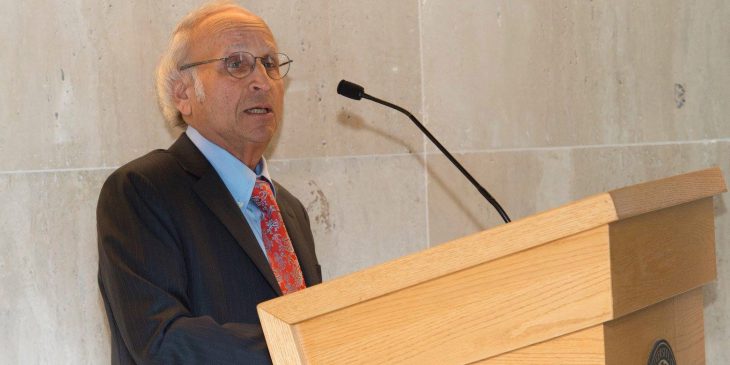From treating breast cancer to developing the polio vaccine, many innovative discoveries that shape modern day medical care came out of the University of Pittsburgh School of Medicine.
Pitt recently honored five Pitt Med innovators who have changed the medical world with a tribute in Scaife Hall. Located in the Pitt Med, the interactive exhibit displays facts and career history about each of the renowned physicians.
This display will serve as motivation to Pitt medical students, as each honoree was once in the same shoes as them.
“I’ve come to think of the exhibit as pure inspiration, and it’s fitting that students, physicians and scientists should pass here daily,” said Dr. Arthur Levine, senior vice chancellor for the health sciences and John and Gertrude Petersen Dean of Medicine at the Pitt School of Medicine. “These are the people we want our students to think about as they confront their own obstacles and prepare to write the next chapters in American medicine.”
About the Pioneers
Dr. Bernie Fisher: Fisher spearheaded the method used to diagnose and treat breast cancer today. As a surgeon and researcher, he was the first to show that less-invasive lumpectomy surgery treated breast cancer just as effectively as radical mastectomies. This discovery extended and improved the lives of many thousands of women.
Dr. Thomas Starzl: Known as the “father of transplantation,” Starzl performed the world’s first human liver transplant in 1963, changing the trajectory of modern medicine.
Dr. Maud Menten: Menten was an early innovator in modern drug therapy. She helped develop the Michaelis-Menten Equation, which determines the rate of an enzyme reaction. Without this mathematical equation, the development of most drugs over the last century would have been impossible.
Dr. Jonas Salk: Salk developed the first successful polio vaccine as the director of the Virus Research Laboratory at Pitt Med. This forever changed the field of medicine by preventing a deadly infectious disease.
Dr. Peter Safar: Known as the “father of modern day cardiopulmonary resuscitation (CPR),” Safar’s research efforts and accomplishments in emergency medicine, critical care medicine, resuscitation research and disaster reanimatology have saved many lives.








